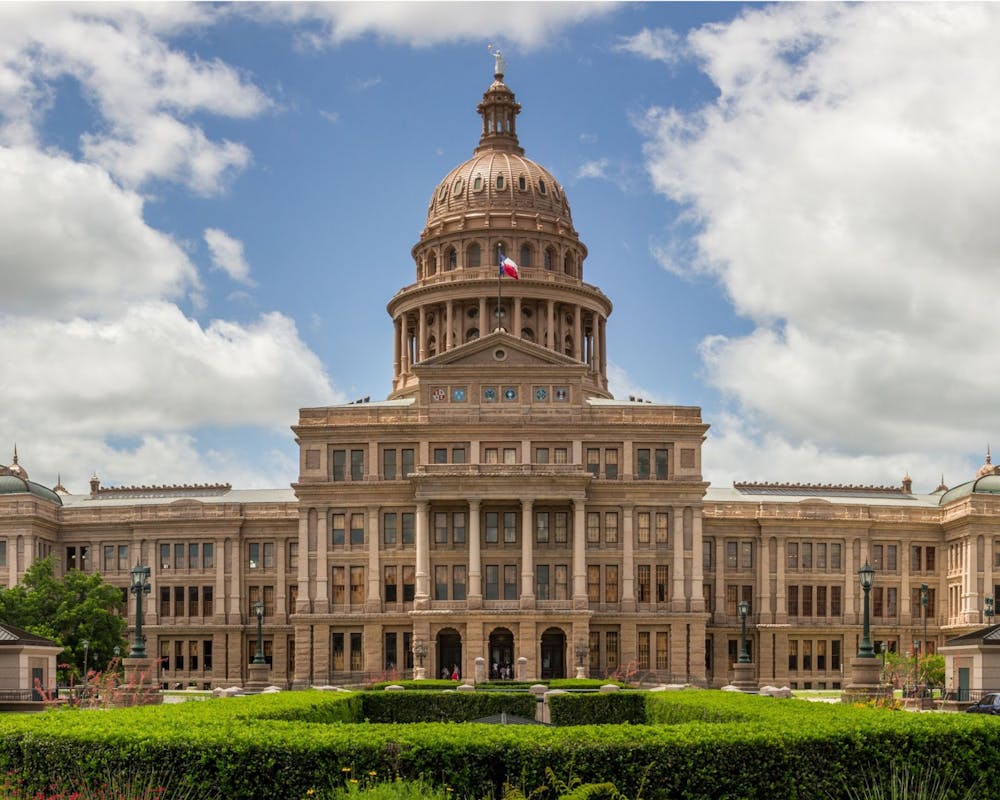Connor Carlin
Staff Writer
After a months-long, drawn-out struggle, Texas Republicans have managed to pass strict voting restrictions against overtures from activists and Democratic lawmakers, with Texas Governor Greg Abbott (R-TX) signing Senate Bill 1 into law on Sept. 6.
The bill in question boasts a multitude of new regulations on Texans that some say restrict voting rights, most in direct response to GOP allegations of fraud during the 2020 presidential election. According to The Texas Tribune, several of these provisions target practices utilized by Democratic-majority population centers and others are advantageous to smaller, Republican-majority districts. One creates a new time window for early voting of 6 a.m. to 10 p.m., banning the 24-hour window offered by Harris County in 2020. The law lowers a population threshold mandating at least 12 hours of early voting access from counties with more than 100,000 people to counties with more than 55,000, expanding early voting in smaller counties that are mostly dominated by Republicans.
Another provision outlaws drive-thru voting, also notably used by Harris County in 2020. In fact, the language of the bill is explicit in banning the use of garages as voting venues, a clear reference to an incident during the 2020 election when a parking garage of the Toyota Center, the home stadium of the Houston Rockets, was used as a voting site. Both drive-thru and 24-hour voting, according to Harris County officials, were favored disproportionately by voters of color.
Opponents of the law have been vocal in their criticisms, claiming that the legislation will suppress people of color’s access to the ballot. They have cited the above mentioned provisions as imposing unfair penalties on the ways people of color vote, along with provisions giving greater autonomy and freedom of movement to partisan poll watchers.
In addition, opponents, such as Nancy Crowther, a 64-year-old disabled retiree, have pointed to other provisions that they say will take “a lot of dignity away” from the disabled and the elderly when it comes to voting. The most prominent of these are new criminal penalties being imposed on those who assist someone with their ballot and making it a state felony to distribute mail-in ballots unsolicited, both voting practices which have been highly beneficial to disabled and elderly voters.
While Abbott and Republican lawmakers have defended SB. 1 as making it easier to vote but harder to cheat, the controversial legislation has caused an uproar among activists and lawmakers, who argue that the bill is simply playing into “the Big Lie” that massive voter fraud caused former President Donald Trump to lose the 2020 presidential election. Texas Democratic lawmakers have expended nearly all options to prevent the bill’s passage, even fleeing the state, as 51 Democratic State Representatives did earlier this summer to prevent the legislature from reaching a necessary quorum to vote on legislation. Governor Abbott was forced to call two special sessions of the Texas legislature before enough Democrats returned to the state to pass the bill.
According to Forbes, since the law’s passage, five lawsuits have already been filed by civil rights and disability rights organizations, such as the League of United Latin American Citizens (LULAC), the NAACP and REV UP Texas, arguing it violates the Voting Rights Act. Abbott has expressed his personal confidence that the law will be upheld by whatever court takes a look at it.
The Texas law is the latest in a series of voting restriction legislation filed by Republican state legislators after the 2020 election. According to the Brennan Center, in just 2021, almost 600 bills with provisions restricting voting access have been introduced across the country, 89 percent of them by Republican lawmakers. Prior to passage of SB. 1, Texas already had among the strictest voting requirements in the country, and is now joining a group of states passing new voter restrictions, including Arizona, Georgia and Florida. The Brennan Center has itself launched a lawsuit challenging the law as discriminatory.
Their lawsuit, which is joined by three other plaintiffs, among them the Harris County Attorney’s Office, alleges that the law violates the First, Fourteenth and Fifteenth Amendments. Given that a central argument from proponents of the bill is to combat voter fraud, the Brennan Center pointed to Texas Attorney General Ken Paxton’s failed attempts to find evidence of widespread voter fraud as proof that the bill’s new regulations are “as pointless as they are unlawful.”
In the wake of this most recent law, calls for filibuster reform in the US Senate have been renewed as a means of passing two expansive voting rights bills, the John R. Lewis Voting Rights Advancement Act and the For the People Act, in order to protect and expand voting access for vulnerable communities. Senate moderates Joe Manchin (D-WV) and Kirsten Sinema (D-AZ) have refused to support such a proposal, which would allow Democrats to pass the bills with a simple 51 vote majority rather than the 60 votes currently required for legislation of this kind.







